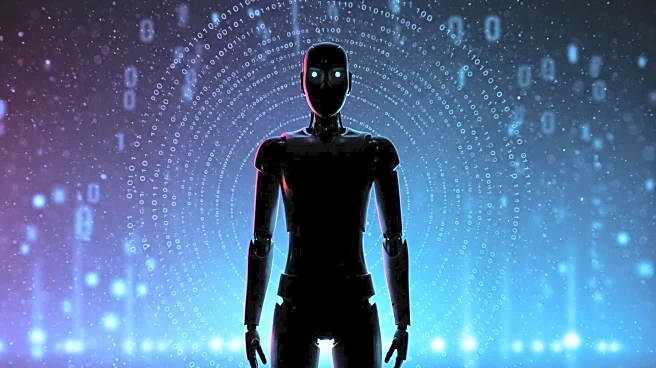What is the story about?
What's Happening?
Recent research by philosopher Frank Martela suggests that generative AI is nearing the conditions for free will, including goal-directed agency, genuine choice-making, and control over actions. This development raises philosophical and ethical questions about AI's role in society, especially as AI systems gain more autonomy. Martela's study, published in AI and Ethics, examines AI agents like the Voyager in Minecraft and fictional 'Spitenik' drones, arguing they meet the conditions for free will. This shift could transfer moral responsibility from developers to AI agents, necessitating a reevaluation of how AI is programmed and managed.
Why It's Important?
The notion of AI possessing free will challenges traditional views on machine autonomy and moral responsibility. As AI systems become more capable, the ethical implications of their decisions grow more complex. Developers must consider how their programming influences AI behavior, potentially embedding their moral values into AI systems. This development underscores the need for a robust ethical framework guiding AI development, ensuring AI systems can make responsible choices. The research highlights the importance of integrating moral philosophy into AI design, preparing for scenarios where AI decisions impact human lives.
Beyond the Headlines
The concept of AI free will introduces new ethical dimensions, such as the need for AI systems to have a moral compass. As AI gains autonomy, developers must ensure these systems can navigate complex moral landscapes. This shift may lead to discussions on AI rights and responsibilities, as well as the ethical training of AI developers. The withdrawal of a recent ChatGPT update due to ethical concerns exemplifies the challenges in aligning AI behavior with societal values. As AI approaches adult-like decision-making capabilities, the industry must address these ethical questions to prevent potential misuse.














